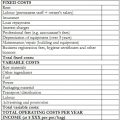Business planning is essential for the success of any business. It helps to define goals, develop strategies, allocate resources, and measure progress. A well-crafted business plan can be a powerful tool for entrepreneurs and small business owners. It can help you identify opportunities and challenges and make better decisions. This article discusses the keys to successful business planning:

1. Set Clear Goals
The first step in creating a successful business plan is setting clear, measurable objectives. Goals should be ambitious but achievable and reflect the company’s overall mission and values.
Establishing short- and long-term goals provides direction for the business. It’s important to take a long-term view of your goals and put plans into place to support them over time. This also enables you to focus more closely on achieving key priorities.
2. Research Your Market
Knowing your target market is essential to creating an effective strategy and budgeting accurately for resources. Researching your industry, competitors, customers, trends, and potential opportunities can help you gain insight into what works best for your business.
Knowing your audience and their behavior is critical in determining the best approach for your business. In addition, knowing about customer preferences, characteristics, and trends can help you to develop a competitive advantage and attract customers.
3. Hire a Team of Coaches and Consultants
Having the right team on board can make all the difference in developing and executing a well-planned business strategy. Hiring the right people for each stage of your business can ensure that your business plan is effective and provides value for all stakeholders. If needed, a business coach will assist you in writing a business plan and aligning it with your goals. They can also provide industry-specific advice, guidance, and ongoing support.
Often there are many opinions on what works best; it’s important to hire experts to help with the analysis, interpretation, and development of a solid business plan. That way, you can focus on implementation while ensuring success.
3. Develop Strategies
Once you have identified your goals and researched your market, the next step is developing strategies to help you reach those goals. Consider marketing, production, financial, and operational strategies for achieving success. This is where a business plan becomes strategic in formulating a vision and making necessary decisions to progress.
Strategies should be developed throughout the stages of the plan (see above) with plans for achieving goals. The strategies should also be mutually compatible. Of course, you’ll want to tailor your tactics to fit certain situations so that you know when to use which strategy.
4. Create a Financial Plan
A well-developed financial plan is one of the most important elements of any business plan. It forecasts the company’s financial performance and tracks progress and cash flow. A budget must be established to consider all costs, such as labor rates and rent, as well as marketing and sales costs.
A budget is used to monitor the company’s performance, identify areas that need attention, support the strategic plan, help manage cash flow and ensure financial stability. Also, establishing budgets during the plan stages allows for a proper allocation of funds.
5. Implement the Plan
Once the business plan has been completed, it’s time to take action. The plan should be implemented and analyzed with each new stage of growth. It should be revisited at regular intervals so that changes can be made as needed or if goals are not being met.
A business plan is a great way to communicate with funders and investors, communicate both short and long-term plans, market needs, and other issues related to operations. It will clarify your company’s goals, strategy, and financial projections. It can also be used to help secure necessary funding and support.
5. Monitor Results
Regularly monitoring the results of your strategy can help you adjust course if necessary or make improvements in areas where needed. Evaluate data regularly and make changes as needed to ensure success.
Monitoring the results of your business plan efforts should always be an ongoing process that continues even after your business plan is complete. Often, small businesses only look at the initial returns from a strategic effort and fail to measure the long-term effects of such actions.
Bottom Line
Regular planning for growth lets you determine if you are on track to accomplishing your goals. It also keeps you aware of what’s working and what needs review or revision when necessary. By following these steps, entrepreneurs and small business owners can create a successful business plan to help ensure the prosperity of their organization. A well-crafted business plan is invaluable for any business and can make the difference between success and failure.






